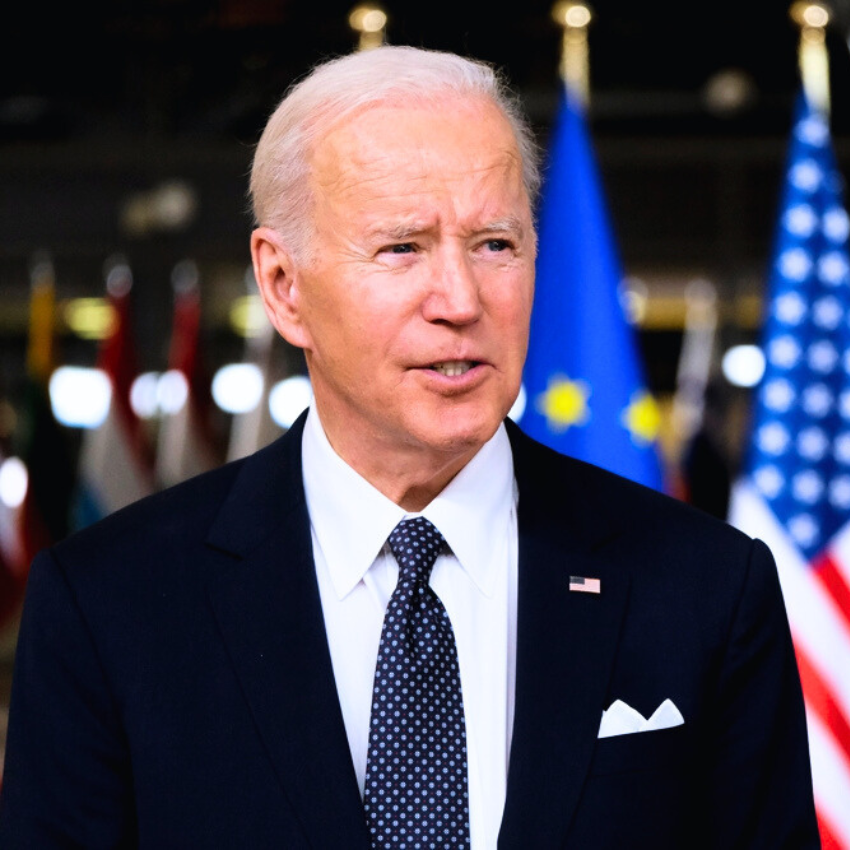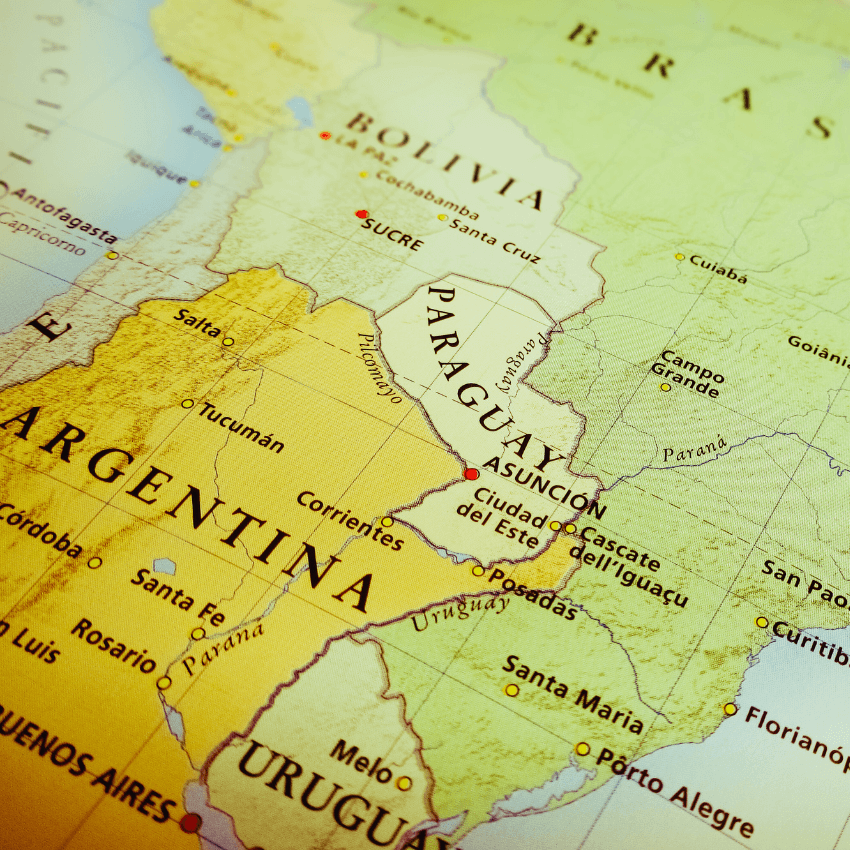Americas Program
Ifri's work on the Americas region focuses mainly on the United States. Indeed, for more than 20 years, Ifri's Americas Program has provided keys to understanding American society and domestic policy while shedding light on developments in the country's foreign policy, including transatlantic relations and trade issues.
Since 2023, a specific axis on Latin America structures more actively Ifri's research on this region.
Ifri's Canada program was active in 2015 and 2016.
Read more


Research Fellow, Head of the Americas Program, Ifri
Titre Bloc Axe
Research Areas
See all our interventions
Titre Axe de recherche
United States
The November 2020 election of Joe Biden ended Donald Trump's extraordinary tenure. However, it doesn't inevitably indicate a return to previous policies, as American society's expectations have changed. Indeed, there is a call for a strong federal state on economic and social issues on the one hand, and on the other hand an increased mistrust vis-à-vis American interventionism. The magnitude of these transformations shows how necessary is a monitoring and analysis of the ever-evolving American political landscape — especially since they resonate with comparable political developments in Europe and in the rest of the world.
Founded in 2000, Ifri's United States Program aims to understand American culture and politics from the inside. Furthermore, it studies the evolutions of the country’s foreign and defense policies. It lastly actively contributes to maintaining close trans-Atlantic ties, producing and broadcasting research on the United States in France and Europe while also regularly welcoming U.S. academics and officials to Paris.
Building on field missions and a large network of journalists, business executives, diplomats, academics and researchers from American think tanks, the program's analysis are offered in two main formats: the Potomac Papers, which are about 30 pages long notes that feature our latest research activities, and the Chroniques Américaines, which cover the country's social and political current events.The program also organizes research seminars and, since 2000, a major annual conference in December. As to inform the largest audience possible, our experts regularly intervene in the media, both in the written press and audiovisual sector. Our researchers also contribute to Ifri's main publications, Ramses and Politique étrangère. Through this program, Ifri associated with the «Time to Sign Off» (TTSO) Newsletter and Slate.fr to air the "Trump 2020" Podcast (available in French) every Wednesday from June 2019 to January 2021, focusing on the U.S. presidential elections. The partnership is renewed with the "New Deal" Podcast (also available in French) to report on U.S. current political events every Thursday.

Titre Axe de recherche
Canada
From a French standpoint, Canadian issues are often considered through Québec’s cultural and political dynamics. It would be unfortunate, however, to miss out on the benefits of the Canadian model out of a lack of interest for the country’s Anglophone regions. The uniqueness of Canada’s political institutions stems from the fact that they seek to integrate several layers of diversity: national and linguistic minorities, immigrants from diverse backgrounds and native populations. Today, the country offers an original approach on major topics such as federalism and multiculturalism.
Meanwhile, the aircraft and transportation industry, energy and mining, as well as sustainable development are key to the country’s economic prosperity, which is reflected in its international trade policy. Knowing about Canada’s economic environment is crucial, especially whilst the Comprehensive Economic and Trade Agreement is in the process of being ratified.
Canada also plays a very special role on the international scene. It was instrumental to the emergence of the concept of peacekeeping missions in the 1950’s, an idea that Canada has consistently linked to a foreign policy agenda of poverty reduction and human rights defense.
This Program was active in 2015 and in 2016.

Titre Axe de recherche
Latin America
Latin America is a resource-rich region with enormous potential for economic development. Venezuela and Mexico, for example, have essential oil reserves. Lithium, a critical material for the ecological transition, is abundant, especially in Chile, which has the largest reserve in the world with 9.2 million tons of lithium. However, this economic potential is impacted by the political situation in several states. Latin America has a long history of democratic instability and authoritarianism, and it is therefore essential to understand current political developments. This instability is also one of the primary causes of the large migration flows from Central and South American countries to the United States and Canada. For a long time, Latin America has been considered the ''backyard'' of the United States, but now it must reckon with China and Russia, which are trying to increase their influence in the region. Nevertheless, Latin America has made great strides in regional integration in recent decades, with organizations such as Mercosur, which is currently negotiating an ambitious trade agreement with the European Union. Created in 2023 as part of the Americas program, a specific research axis on Latin America allows Ifri to structure a more active research on this region, especially on energy policies but also on important democratic and geo-economic issues.

The Team

Our research fellows: Americas Program
Publications
American Student Loans: Debt, Reform, and the True Cost of Higher Education
This piece is the first in a series of four Chroniques américaines on education in the United States, published this week.
Obama at West Point
President Obama presented the case for his foreign policy last week – again. He addressed the cadet corps at West Point in what was billed as a comprehensive strategic statement for the balance of his tenure in office, and for America's future. Obama's speech came just over a week after John Kerry issued his own call for America to take a large and active role in the world — urging Americans not to "allow a hangover from the excessive interventionism of the last decade to lead now to an excess of isolationism in this decade." It set the pitch and tone for the President's address. [1]
How to Misread Polls
Poll numbers are the life blood of politics these days. Anything expressed in digits has a claim to truth that assertions without digits cannot make. They inspire confidence - especially among those aspiring to public office - that they actually understand what public sentiment is.
Obama announces "Opportunity Ladder"
There are moments in life when you receive an unmistakable sign that the game is over. That it’s time to fold your tent, to pull up stakes, to pack it in, to furl the flag, to trim the sails, to let go of a lost cause. At best, to wait for next year. In the extreme, to write it off permanently. And if one chooses to breast the tide, to do so stoically.
The Return of Robert Gates
The memoirs of public men are exercises in self-promotion and self-justification. They are designed to etch a portrait of the (wo)man that will live across time. It's the legacy thing. These days, that legacy pertains also to the "here and now" since memoirs are not necessarily the conclusion of a career but rather the curtain-raising on its next act.
Accountability: "Missing In Action"
Accountability is on the endangered species list. No - not the word. Indeed, “accountability” reverberates around the electronic ether almost as frequently as “thwarking.” It is the reality of persons, especially public persons, taking responsibility for acts of malfeasance in ways that entail exemplary punishment and personal costs.
Why Hillary?
Hillary Clinton has been enthroned as the presumptive next President of the United States - by the celebrity mongers, by the trendy Hollywood set, by the media, by the pundits, by the big donors, by Congressional Democratic leaders like Nancy Pelosi and Charles Schumer and by the Las Vegas odds-makers. The crystallization of a consensus three years before the event is as intriguing as the questions about what sort of president she would make.
The Washington Tea Party
The near meltdown of the United States government evoked worldwide dismay and confusion. Both reactions were especially acute among America’s well-wishers. For not only would they have suffered the consequences of a global economic crisis but they also feel dependent on the probity of American leadership. That dependence may stem in part from their own failures to assume their reasonable share of responsibility for sustaining an orderly international system - a state of affairs remarkably unaffected by the costly flaws in Washington’s custodianship over the past several years. It is nonetheless real.
NSA Does the Grand Tour
On Tuesday Barack Obama called President Francois Hollande of France to explain the National Security Agency’s massive surveillance of French government offices, businesses and private citizens. Obama stated that this was a well-meaning attempt to protect both countries from Islamic terrorism. He offered to “reexamine” the program so as to determine whether the right balance was struck between public safety and privacy rights.
Global Swing States and U.S. Strategy
Defending and renewing the global order is a priority for the United States and Europe. An important part of this effort will be accomplished if transatlantic partners can successfully engage four “global swing states” — Brazil, India, Indonesia and Turkey — in the management of global issues, because of their geopolitical and economic status, as well as their desire to have a stronger voice in the various international forums. Successful engagement of these nations will be key to preserving the international order and U.S. leadership.
Would you like to support this Program? Contact us.
Contact us directly
Support independent French research
Ifri, a foundation recognized as being of public utility, relies largely on private donors – companies and individuals – to guarantee its sustainability and intellectual independence. Through their funding, donors help maintain the Institute's position among the world's leading think tanks. By benefiting from an internationally recognized network and expertise, donors refine their understanding of geopolitical risk and its consequences on global politics and the economy. In 2024, Ifri will support more than 70 French and foreign companies and organizations.
































